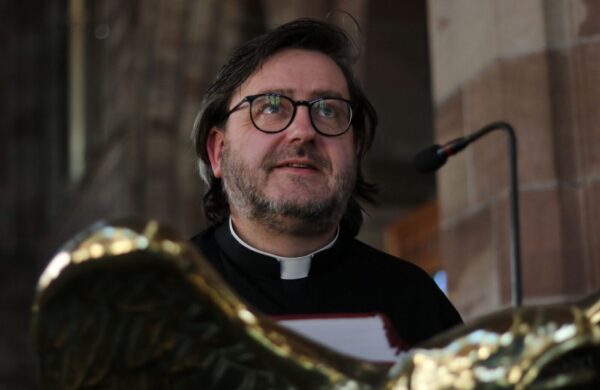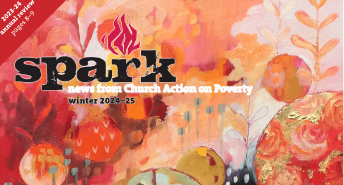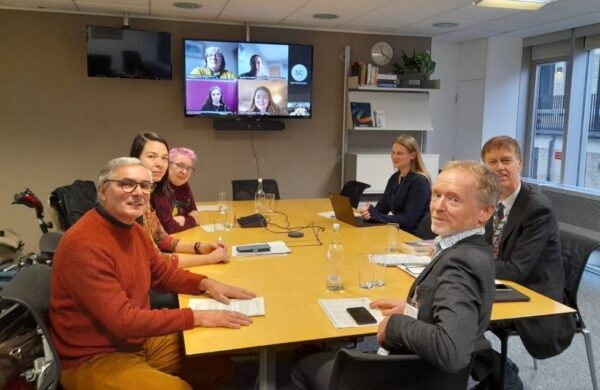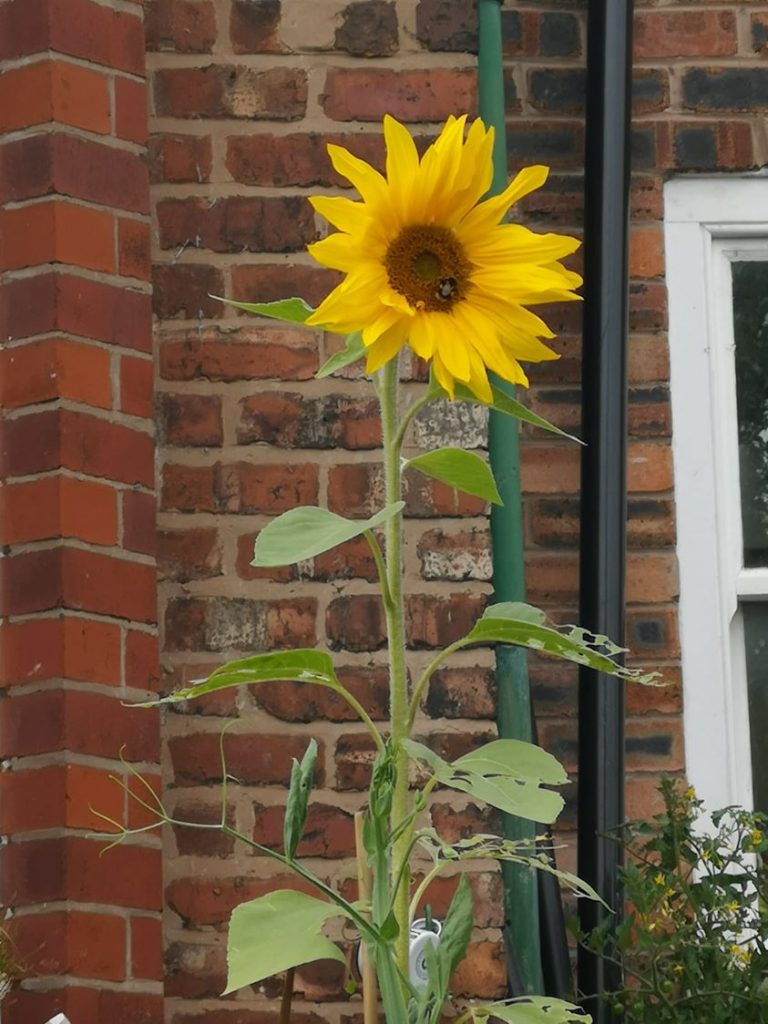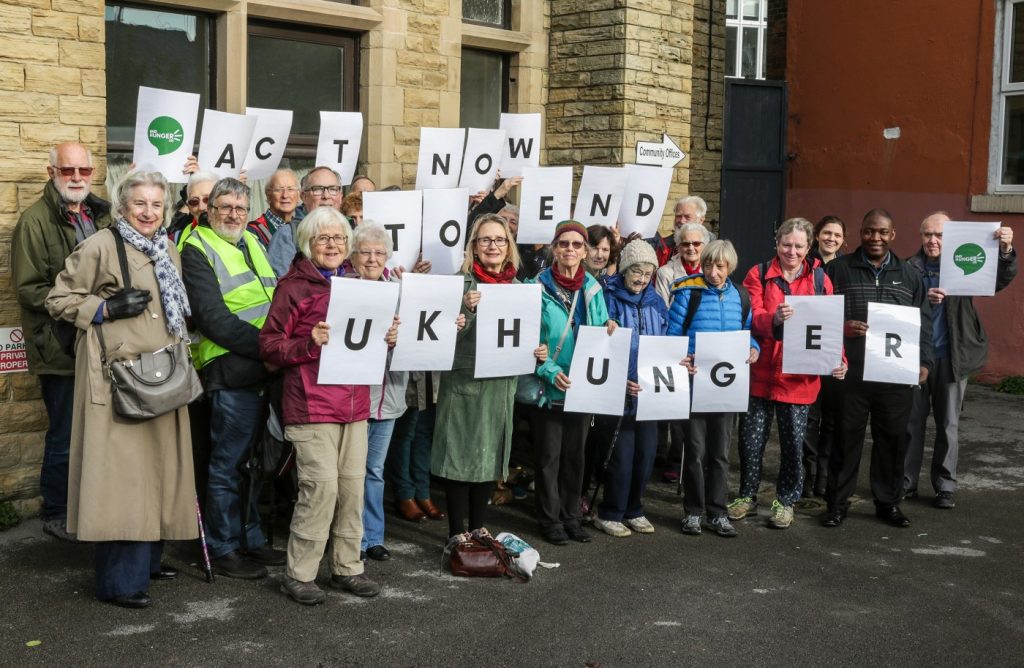Look after each other
Self-Reliant Group facilitator, Laura Walton, reflects on the importance of looking after each other.
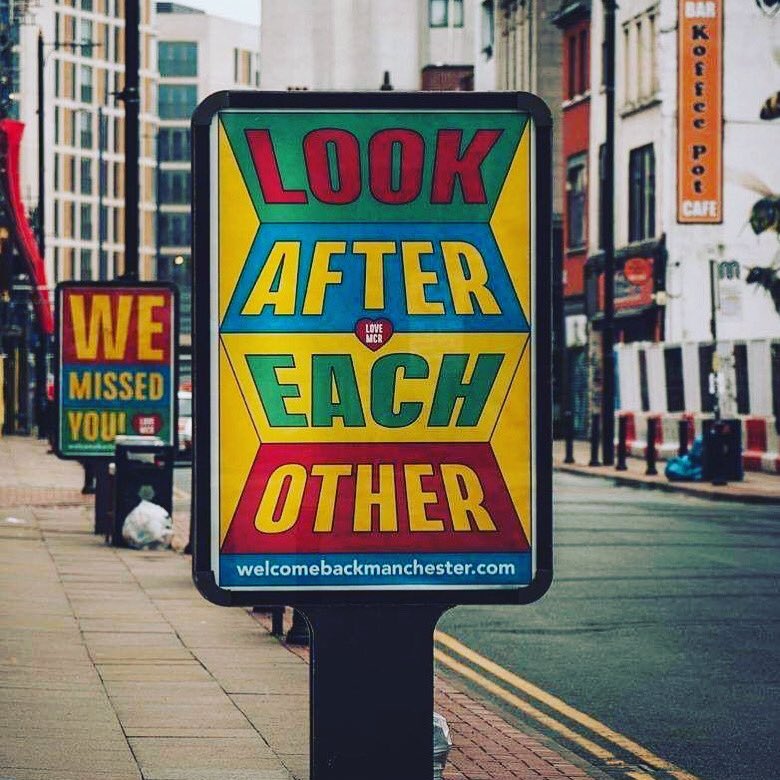
Despite what the rest of the country thinks, we Mancunians are following the rules. On a huge billboard in amongst the skyscrapers of the Mancunian way is the instruction to….. Look after each other. It is clear, simple and achievable and with a further positive outcome guaranteed; people will look after us. It has encouraged me to look out for examples of this happening if I go out. I’ve seen people wiping trolleys after they’ve shopped, boxes of free apples on pavements in my neighbourhood, people sharing bin space and giving way even around puddles.
One lady in a Self Reliant Group in Old Trafford has been writing to old friends who she no longer sees, to encourage them. Occasionally a relative may phone on behalf of the elderly Mother or Aunt to thank her and to say how her kind words brightened their day. This SRG member is 96 years old and looks after the money for her group. She has been shielding for nearly 5 months and likens the whole unhappy affair to life towards the end of the war except for in the war you knew your enemy. She admits that her mental health has declined quite dramatically.
A morning tea was planned for the group in the communal garden where they live. Unfortunately the local lockdown prevented the tea in the garden and instead three of the ladies met at the front of the building, with very limited shade. Our elderly letter writer was very keen to be part of the tea and cake brigade and to spend time with people. She sat for as long as she could in the group before needing to move into the shade. Her 2 friends, both in their 80s lent her their arms and supported her to stand and turn and walk and then to sit down again. All 3 were momentarily out of breath but so pleased that they had been able to help their dear friend.
Before Lockdown she would have refused help. In June last year, when the group went on a canal boat day trip she had to walk across a wooden plank to get to dry land, with her 2 wooden sticks. And she did so with no complaints.
Look after each other.
We have seen this so many times within our self reliant group community. People genuinely care for each other and are prepared to go the extra mile for others. They encourage one another and are endlessly resourceful despite limited means, ability and now limited mobility. In getting to know their groups and each other’s needs, people learn to live altruistically and to live with more of a purpose and so have determination and resilience and courage.
For well over 2000 years Christian believers have tried to obey the teaching of Jesus to love one another. Tried and many times failed. But are always ready to try again. For many people during the last few months, having that purpose to life in Lockdown has kept them positive and through prayer they have been given the strength and the energy to persevere.
So Mr. Andy Burnham, we will be looking after each other as that’s just what we do and who we are as SRG members. And if that becomes difficult and we become tired and drained, then we know how to ask our Heavenly Father for more strength and wisdom to know how best to do it.
Find out more about Self-Reliant Groups: http://www.church-poverty.org.uk/srg
Thank you Pat! 40 years of compassionate action
Pat Devlin, one of Church Action on Poverty’s most experienced supporters and activists, is stepping down after almost 40 years. Sometimes, we can see exactly …
Halifax voices: on housing, hope and scandalous costs
This Neighbourhood Voices story comes from West Yorkshire We’re in Halifax. Queen’s Road to be precise – in a former betting shop that is now …
The UK doesn’t want demonising rhetoric – it wants to end poverty
There have been some political statements that have demonised and divided people in the past week. It’s absolutely not what the UK public needs or …
Sheffield Civic Breakfast: leaders told about mounting pressures of poverty
Sheffield Church Action on Poverty’s first Civic Breakfast since Covid has heard that around 120,000 people in Sheffield are living in poverty, homelessness is the …
Artists perform for change in Manchester
The inaugural event in our Artists for Change programme took place in Manchester on 28 April 2024.
Church Action on Poverty in Sheffield: annual report 2023-24
God never intended for one group of people to live in superfluous inordinate wealth, while others live in abject deadening poverty. ———— Revd Dr Martin Luther King ———— …
How we can radically boost recruitment of working class clergy
Our communities are awash with talent – but Churches need to offer new routes to ministry. Father Alex Frost calls …
SPARK newsletter, winter 2024-25
Read the newsletter for all Church Action on Poverty’s supporters and partners.
Meeting the minister
Four community campaigners supported by Church Action on Poverty have met with a Government minister in London, to call for …

